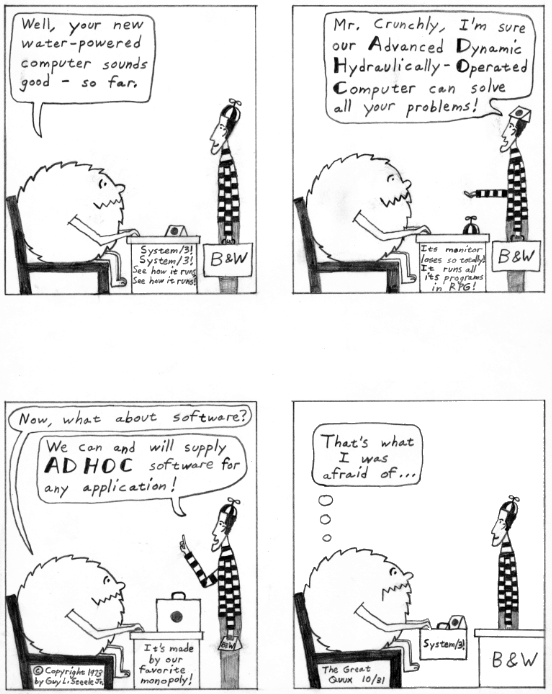ad-hockery
/ad·hok'@r·ee/, n.
[Purdue]
Gratuitous assumptions made inside certain programs, esp. expert systems, which lead to the appearance of semi-intelligent behavior but are in fact entirely arbitrary. For example, fuzzy-matching of input tokens that might be typing errors against a symbol table can make it look as though a program knows how to spell.
Special-case code to cope with some awkward input that would otherwise cause a program to choke, presuming normal inputs are dealt with in some cleaner and more regular way.
Also called ad-hackery, ad-hocity (/ad-hos'@-tee/), ad-crockery. See also ELIZA effect.

This is ad-hockery in action.